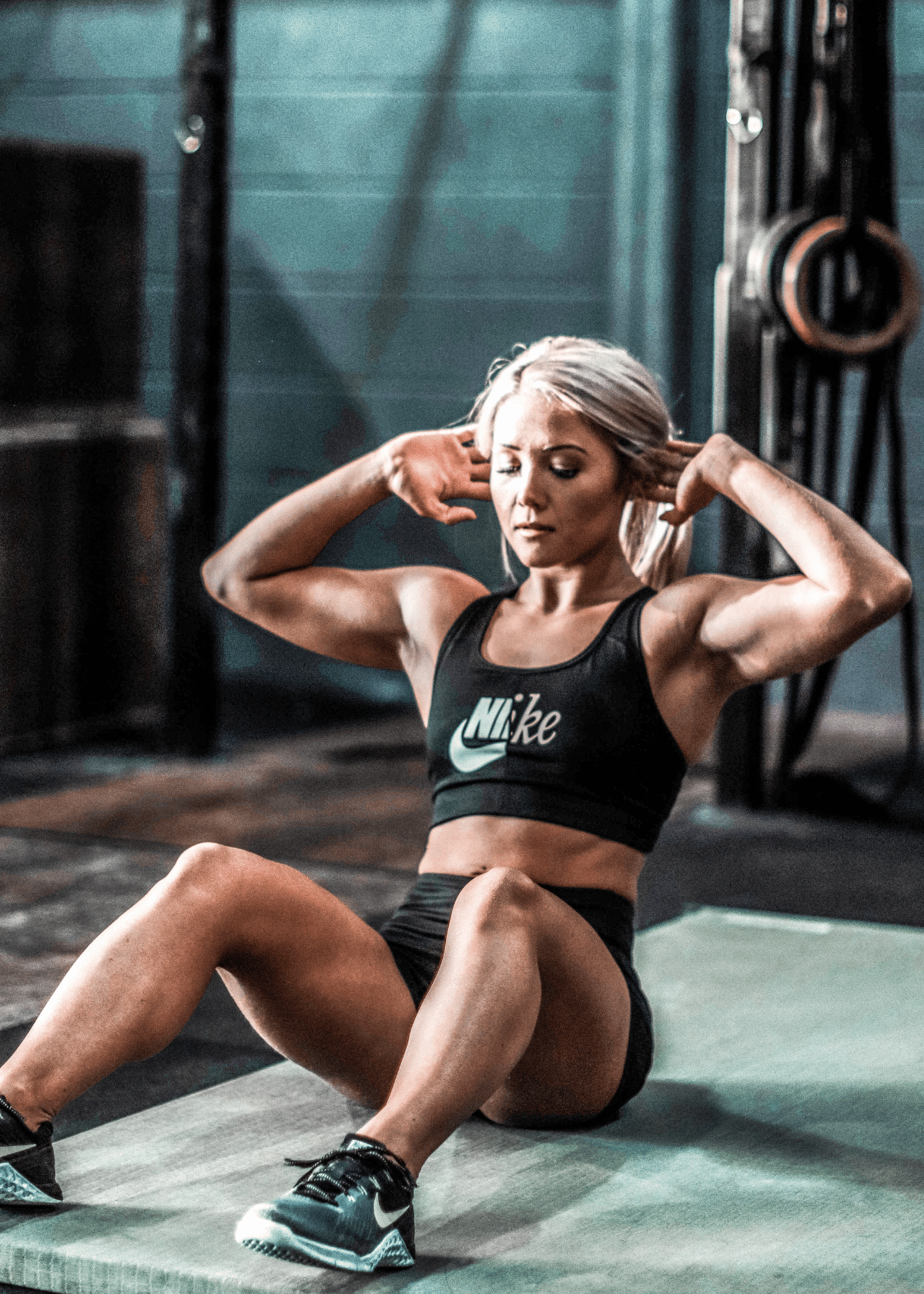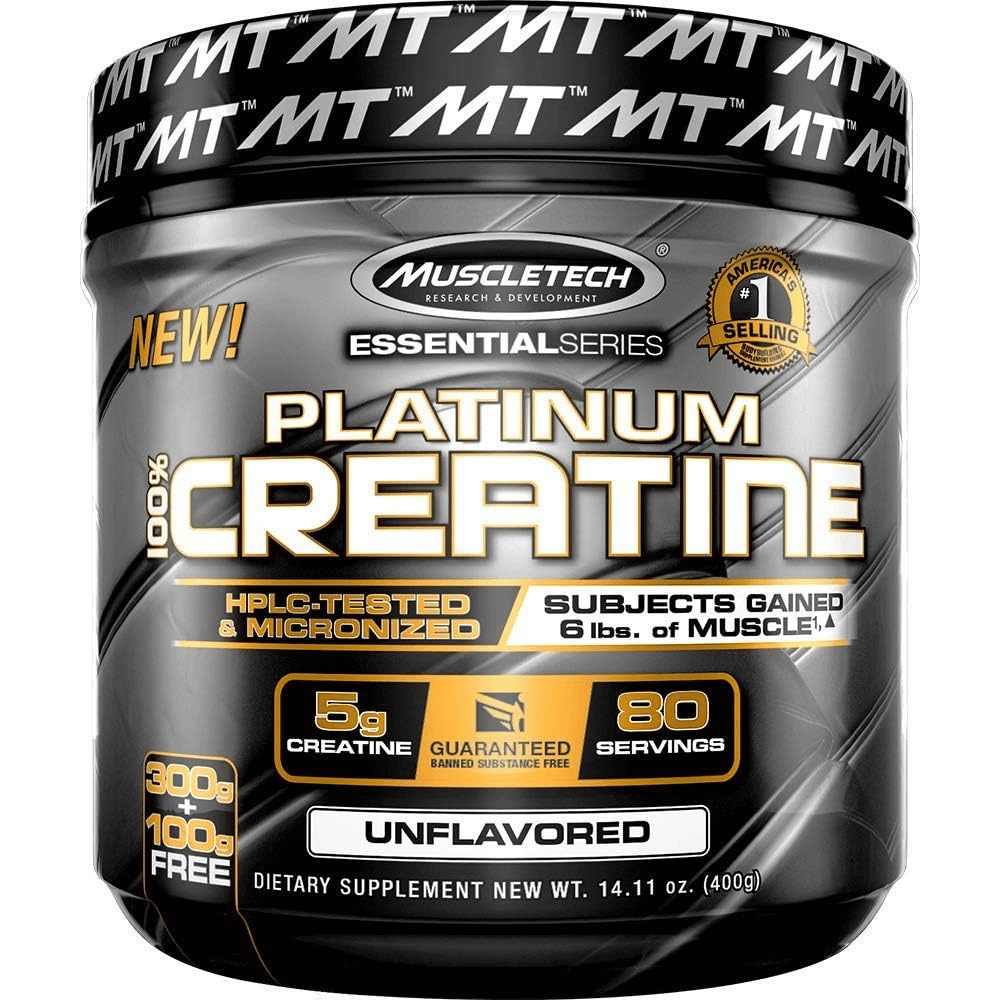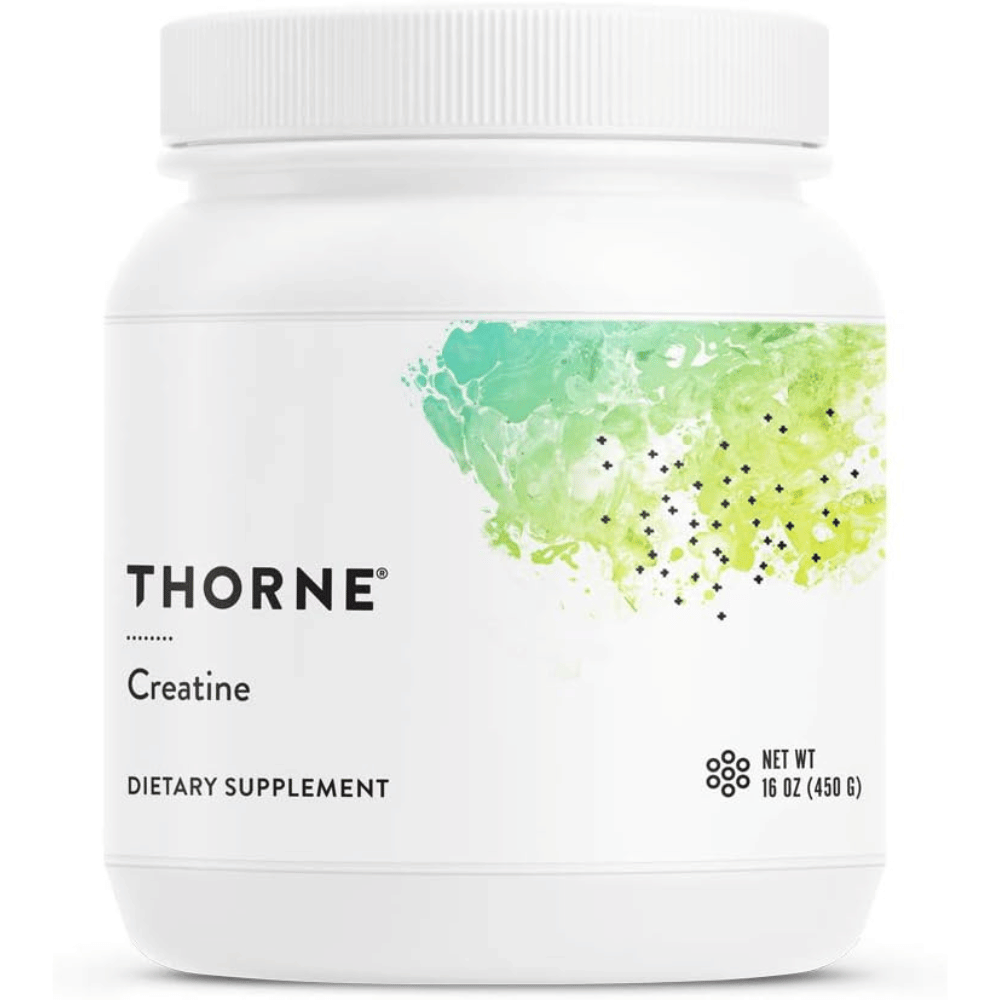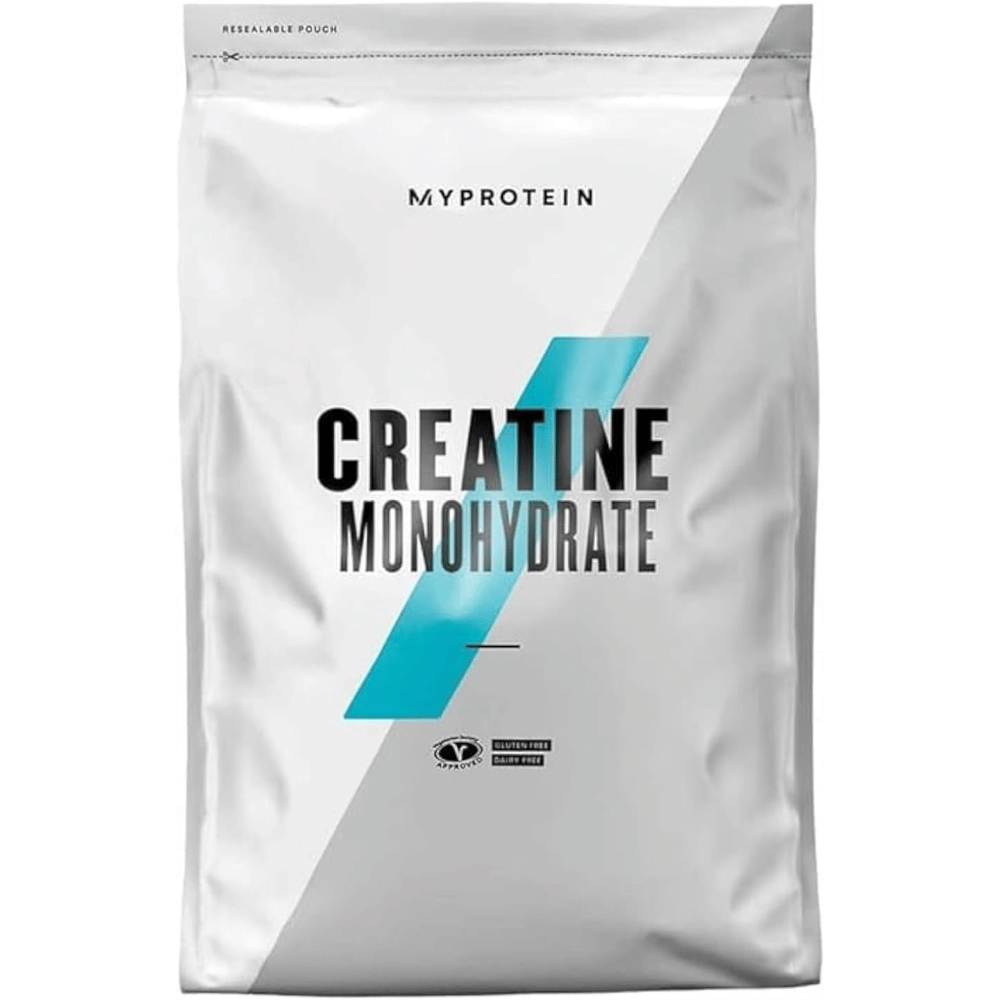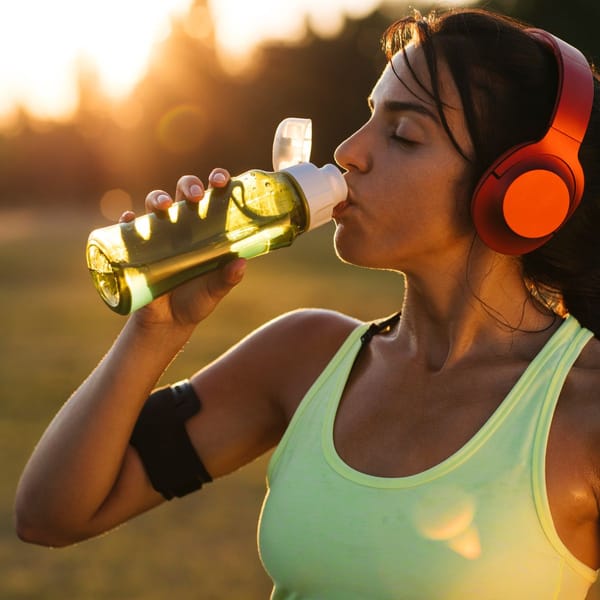Key Takeaways:
- Discover the top creatine supplements tailored for women seeking lean muscle mass and improved exercise performance.
- Understand how creatine supplementation can enhance physical performance and cognitive function without unwanted weight gain.
- Learn the optimal dosages and forms of creatine that align with women's fitness goals, from muscle gain to weight loss.
Creatine is a naturally occurring compound that plays a pivotal role in energy production within muscle cells. It's a staple in the supplement regimen of many athletes and fitness enthusiasts aiming to increase muscle mass, enhance workout performance, and improve overall physical performance.
While creatine is often associated with men, it's equally beneficial for women. This comprehensive review will explore the best creatine for women, focusing on products that support lean body mass, cognitive function, and overall health without contributing to unwanted weight gain.
Creatine HCL vs. Monohydrate
When it comes to choosing the best creatine for women, the debate often centers around creatine hydrochloride (HCL) versus monohydrate powder. Creatine HCL is said to be more soluble and requires smaller doses, which might be appealing for women concerned about bloating or weight gain.
However, the majority of research supports creatine monohydrate as the most effective form for increasing lean muscle mass and enhancing exercise performance.
Creatine Ethyl Ester: A Different Approach
Creatine ethyl ester is another form of creatine that claims to have superior absorption rates compared to monohydrate. However, studies have shown that it may not be as effective in increasing muscle creatine stores.
Women should be cautious and rely on scientific evidence when considering creatine ethyl ester supplements.
The Role of Creatine in Sports Nutrition
The sports nutrition position stand on creatine underscores its significance as a pivotal supplement for individuals engaging in high-intensity exercise. This endorsement is rooted in extensive research demonstrating creatine's ability to enhance strength, increase lean muscle mass, and improve exercise performance.
As a dietary supplement, creatine is often found in powder form, which allows for easy mixing with liquids. However, it's not just about the physical gains; creatine also plays a role in reducing exercise-induced muscle damage, making it a go-to post-workout supplement for athletes and fitness enthusiasts alike.
Product manufacturers have addressed safety concerns by ensuring that the best creatine supplements meet rigorous quality standards. High-quality creatine supplements are typically free from contaminants and unnecessary fillers, providing users with a pure and effective product.
Creatine capsules offer an alternative to powders, catering to those who prefer convenience or have difficulty with the taste or texture of creatine powder. Regardless of the form, it's essential to choose a creatine supplement that aligns with one's dietary preferences and workout regimen to fully harness its benefits.
Creatine's Impact on Body Composition
When it comes to body composition, creatine is often associated with the ability to gain weight, primarily through an increase in muscle mass. This is particularly beneficial for women looking to enhance their physique and strength.
The best creatine supplements contribute to this process by providing the muscles with additional energy, which can lead to more productive workouts and, consequently, greater muscle hypertrophy. It's important to note that the weight gain associated with creatine is typically due to increased intramuscular water retention and muscle fiber growth, rather than fat accumulation.
The dosage of creatine plays a crucial role in how it affects body composition. A common recommendation is to consume 3-5 grams of high-quality creatine supplement per serving, post-workout, to support recovery and muscle growth.
Some individuals may opt for a loading phase, which involves taking a higher dose for a short period to saturate the muscles with creatine, followed by a maintenance phase with a standard dose. This strategy can accelerate the initial benefits of creatine supplementation, although it's not necessary for everyone.
As with any dietary supplement, it's advisable to consult with a healthcare professional before starting creatine, especially for those with specific health conditions or dietary restrictions.
The Role of Creatine in Women's Health
The conversation around dietary supplements often revolves around their benefits and applications for men, but it's crucial to highlight the unique advantages they hold for women's health.
Creatine, in particular, has been studied for its potential to support cellular energy production and muscle strength, which can be beneficial for women across various age groups and fitness levels.
Product manufacturers have addressed safety concerns by ensuring that their creatine supplements are free from harmful additives and are produced in compliance with stringent quality standards. This commitment to purity and safety helps to reassure women who are cautious about the supplements they incorporate into their wellness routines.
In addition to physical benefits, creatine has also been linked to improved mental clarity and cognitive function, which can be particularly advantageous for women who juggle multiple responsibilities. The ability of creatine to support brain health is an area of growing interest, with research suggesting that it may help mitigate the effects of sleep deprivation and stress.
As dietary supplements continue to evolve, the focus on women's specific health needs is leading to more tailored and effective products that support their overall well-being.
Creatine's Impact on Hormonal Balance and Menstrual Health
Creatine's influence extends beyond muscle and cognitive enhancement, touching on aspects of hormonal balance and menstrual health that are central to women's physiology.
Emerging studies suggest that creatine supplementation may have a positive impact on energy metabolism and hormonal regulation, which can be particularly beneficial during the menstrual cycle when women may experience fluctuations in energy and mood. Product manufacturers have addressed safety by formulating creatine supplements that are compatible with women's hormonal profiles, ensuring that they can be integrated into their daily routines without adverse effects.
Furthermore, the role of creatine in supporting menstrual health is an area ripe for exploration. Some preliminary findings indicate that regular creatine intake could potentially alleviate some symptoms associated with premenstrual syndrome (PMS), offering a natural alternative to women seeking relief.
As dietary supplements become more specialized, the potential for creatine to harmonize with women's unique biological rhythms presents an exciting frontier for both consumers and researchers alike. The ongoing dialogue between scientific inquiry and product innovation continues to shape a market that is increasingly responsive to the nuanced needs of women's health.
The interplay between creatine supplementation and hormonal health is a critical consideration for women. Product manufacturers have addressed safety concerns by conducting extensive research to ensure that creatine does not adversely affect the delicate hormonal balance. Studies suggest that creatine can be beneficial in supporting the body's natural hormonal functions, particularly in physically active women. The supplementation has been shown to work in harmony with female physiology, enhancing strength without disrupting endocrine systems.
Furthermore, the impact of creatine on hormones like estrogen and progesterone remains a focal point of ongoing research. Preliminary findings indicate that creatine does not interfere with these hormones' levels, which is reassuring for women considering creatine supplements.
Manufacturers are increasingly transparent about their products' hormonal effects, providing users with the confidence to incorporate creatine into their fitness regimes without fear of hormonal imbalance.
Creatine and Female Muscle Recovery
The conversation around creatine often revolves around its efficacy in muscle growth and performance enhancement, but its role in muscle recovery is equally noteworthy, particularly for women. Product manufacturers have addressed safety and tailored their creatine supplements to support the unique physiology of female athletes.
Studies suggest that creatine can significantly reduce muscle cell damage and inflammation following intense exercise, leading to quicker recovery times and less soreness. This is particularly beneficial for women who engage in high-intensity training or sports that require rapid recovery between sessions.
Moreover, the enhanced recovery process is not just about physical readiness; it also contributes to mental well-being. Women who supplement with creatine report feeling more prepared and less fatigued, which can be a game-changer for consistent training.
Product manufacturers have taken note of this and often highlight the recovery benefits of their creatine products in their marketing efforts. By reducing downtime, creatine allows for more frequent and intense training sessions, which can lead to better performance outcomes and achievement of fitness goals.
Creatine and Hydration: Insights for Women Athletes
When discussing creatine supplementation, product manufacturers have addressed safety concerns, often highlighting the importance of hydration. Creatine has a property that draws water into muscle cells, which can lead to an increase in water retention.
For women athletes, this underscores the necessity of maintaining adequate hydration levels to support metabolic processes and prevent potential dehydration. The increased intracellular water can also contribute to muscle volume, which may enhance the appearance of muscle fullness and aid in muscle recovery post-exercise.
However, it's crucial to understand that while creatine promotes water retention within the muscles, it does not necessarily lead to overall fluid imbalance. Studies have shown that with proper hydration, creatine does not increase the risk of dehydration or heat-related illnesses. The enhanced muscle energy reserves may improve performance in high-intensity activities.
Women should be mindful of their fluid intake when using creatine supplements, ensuring they consume ample water throughout the day to support their increased intracellular hydration needs.
Creatine and Women's Cardiovascular Health
The conversation around creatine often revolves around muscle mass and strength, but its impact on cardiovascular health is an area that product manufacturers have addressed with safety and efficacy in mind. Studies suggest that creatine supplementation can enhance the overall cardiovascular profile by improving endothelial function, which is crucial for a healthy heart. Women, in particular, may benefit from this as they are more likely to develop different cardiovascular symptoms than men.
Furthermore, creatine's role in cellular energy production is not limited to muscles; it extends to the heart, which is a tirelessly working muscle. By supporting ATP regeneration, creatine ensures that the heart has the necessary energy to maintain its function.
This is particularly beneficial for women engaging in high-intensity interval training (HIIT) or other strenuous cardiovascular activities, as it may help in sustaining performance and recovery.
Creatine's Impact on Women's Aging Process
As women age, maintaining muscle mass and bone density becomes increasingly important to ensure a healthy and active lifestyle. Product manufacturers have addressed safety concerns by ensuring that creatine supplements are suitable for long-term use, which can be particularly beneficial for postmenopausal women.
Creatine has been shown to support muscle maintenance, which can help in mitigating the natural decline in muscle mass associated with aging.
In addition to muscle health, creatine may also play a role in cognitive function, which can be affected by the aging process. Preliminary research indicates that creatine supplementation could have a positive impact on memory and mental clarity.
While more studies are needed to fully understand the extent of these benefits, the potential for creatine to support brain health in conjunction with muscle and bone integrity makes it a compelling supplement for women's long-term wellness.
The Role of Creatine in Women's Metabolism
The metabolism-boosting effects of creatine are another area where product manufacturers have addressed safety and efficacy for women. Creatine's role in energy production is well-documented, with its ability to rapidly regenerate adenosine triphosphate (ATP) in muscle cells during short bursts of intense activity.
This ATP regeneration is crucial for activities such as sprinting and weightlifting, where quick energy is essential.
For women, this means that creatine can be a valuable ally in enhancing workout performance and increasing the capacity for high-intensity exercise.
Beyond its immediate impact on exercise performance, creatine also influences basal metabolic rate (BMR). An increased BMR means that the body burns more calories at rest, which can be beneficial for women looking to manage their weight or body composition.
While creatine is not a weight loss supplement per se, its ability to support lean muscle mass can indirectly contribute to a more efficient metabolism.
Women incorporating creatine into their supplement regimen may notice improved workout recovery and a slight uptick in their daily caloric expenditure, making it a multifaceted addition to their nutritional arsenal.
Creatine's Role in Bone Health
While muscle performance is a primary focus for many athletes, bone health is an essential aspect of women's wellness that should not be overlooked. Creatine supplementation has been linked to improved bone mineral density, which is crucial for women, particularly as they age and become more susceptible to conditions like osteoporosis.
Product manufacturers have addressed safety concerns by ensuring that their creatine supplements are compatible with women's health needs, including bone health support.
In addition to its muscle-enhancing properties, creatine's ability to aid in bone regeneration and maintenance provides a compelling argument for its inclusion in women's health regimens. The compound's role in stimulating osteoblast formation—a type of cell responsible for bone formation—highlights its potential as a multifaceted supplement. By promoting stronger bones, creatine not only supports an active lifestyle but also contributes to long-term health and mobility for women.
Creatine in the Wellness Industry
The wellness industry has seen a surge in the adoption of creatine as a staple supplement for women seeking enhanced fitness and health outcomes. Product manufacturers have addressed safety and efficacy by formulating creatine products that cater specifically to the wellness community.
These products often combine creatine with other nutrients known for their health benefits, such as vitamins and minerals, to offer a holistic approach to supplementation.
In the realm of wellness, creatine is not only promoted for its physical benefits but also for its potential role in mental well-being. The compound's ability to provide cellular energy extends to brain cells, which may contribute to improved cognitive function and mental clarity.
As the wellness industry continues to evolve, creatine stands out as a multifaceted supplement that aligns with the holistic health goals of many women.
Dosage and Loading Phase
Understanding how much creatine to take is essential for achieving the desired fitness outcomes. The traditional loading phase involves taking a higher dose of creatine for a short period, followed by a maintenance phase.
However, some women may prefer to skip the loading phase to avoid potential weight gain from water retention and instead opt for a consistent daily dose that supports their fitness goals.
Creatine and Weight Management
One common concern among women is the potential for creatine to cause weight gain. While creatine can lead to an increase in body weight due to water retention in muscle cells, it does not necessarily result in fat gain.
Women looking to build muscle or lose weight can incorporate creatine into their supplement regimen without fear of compromising their weight-loss efforts.
Creatine and Cognitive Function
Beyond muscle building, creatine has been shown to have a positive impact on cognitive function. This is an important consideration for women who value mental clarity and focus, whether in athletic competitions or daily life. Adding creatine to a dietary supplement routine may provide an energy boost that extends beyond physical performance.
Safety and Interactions with Medications
Before starting any new supplement, it's important to consider potential interactions with prescription medications. Women should consult with a healthcare provider to ensure that taking creatine will not interfere with their current medication regimen or underlying health conditions.
Choosing the Right Creatine Supplement
With a myriad of creatine supplements on the market, it's crucial to choose a product that aligns with your fitness goals and dietary preferences. Whether you prefer capsules, powder, or a specific flavor like fruit punch, selecting the best creatine supplement for your needs will help you maximize its benefits.
6 Best Creatine Supplements for Women Who Want to Crush Their Fitness Goals
We've done the heavy lifting to bring you the top creatine supplements that are perfect for women. These products are not only effective but also cater to the unique needs of the female body. Get ready to meet your new workout partner in crime!
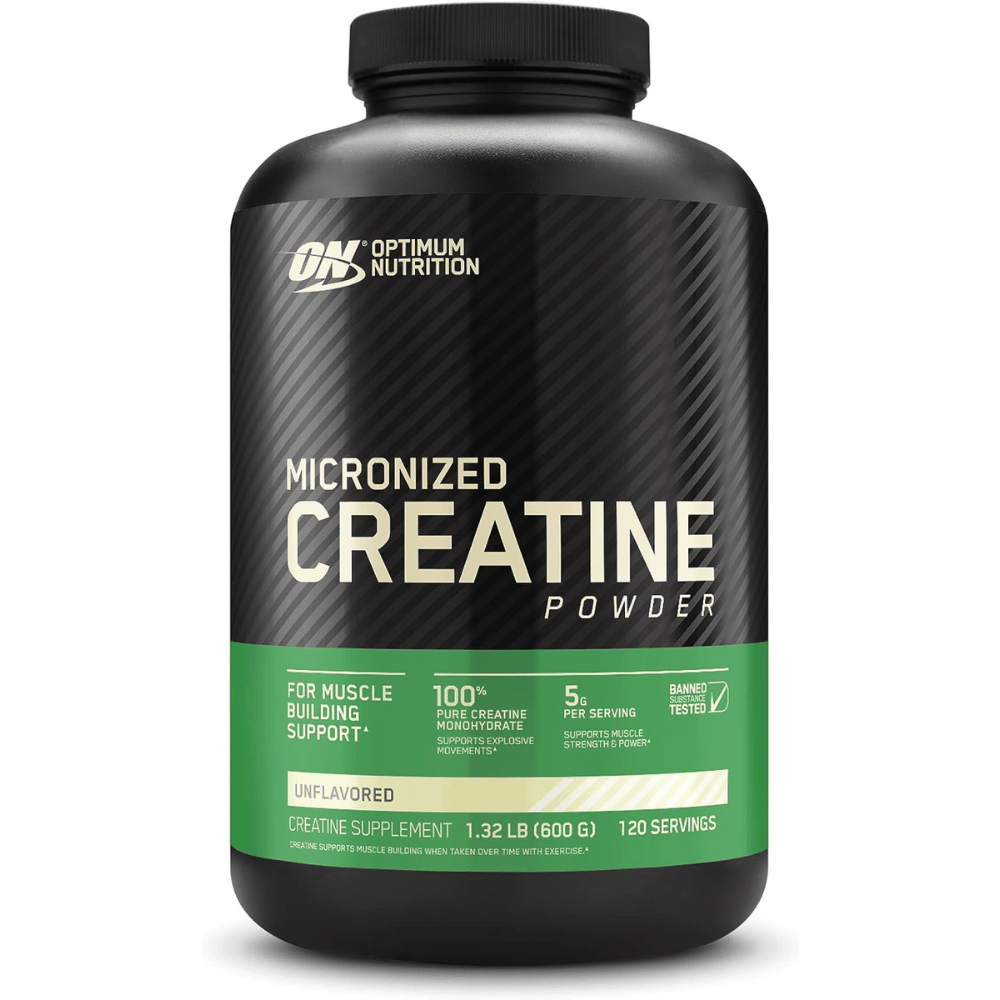
Optimum Nutrition Micronized Creatine Powder
- 5 grams pure creatine monohydrate per serving.
Optimum Nutrition is a trusted name in the fitness world, and their Micronized Creatine Powder is as straightforward and effective as it gets. It's pure, unadulterated creatine monohydrate that's been micronized for better solubility and absorption.
Key Benefits:
- Made with Creapure, a high-quality form of creatine monohydrate.
- Micronized for easy mixing with no gritty texture.
- Zero calories, making it ideal for women watching their caloric intake.
Customer Review:
"As a woman who's serious about lifting, I love ON's creatine. It's flavorless, so I can mix it with anything, and I've noticed significant improvements in my strength and muscle fullness. It's a staple in my supplement routine!"
MuscleTech's Platinum 100% Creatine delivers a clinically researched dose of creatine monohydrate, which has been shown to build muscle and increase strength.
Key Benefits:
- Ultra-pure micronized creatine powder for optimal absorption.
- Non-stimulant formula, perfect for women who are sensitive to caffeine.
- Enhances muscle recovery post-workout, which is crucial for busy women on the go.
Customer Review:
"I've been using MuscleTech's creatine for a few months, and it's fantastic. It's helped me push past plateaus in my training, and I love that it doesn't bloat me like other supplements have in the past."
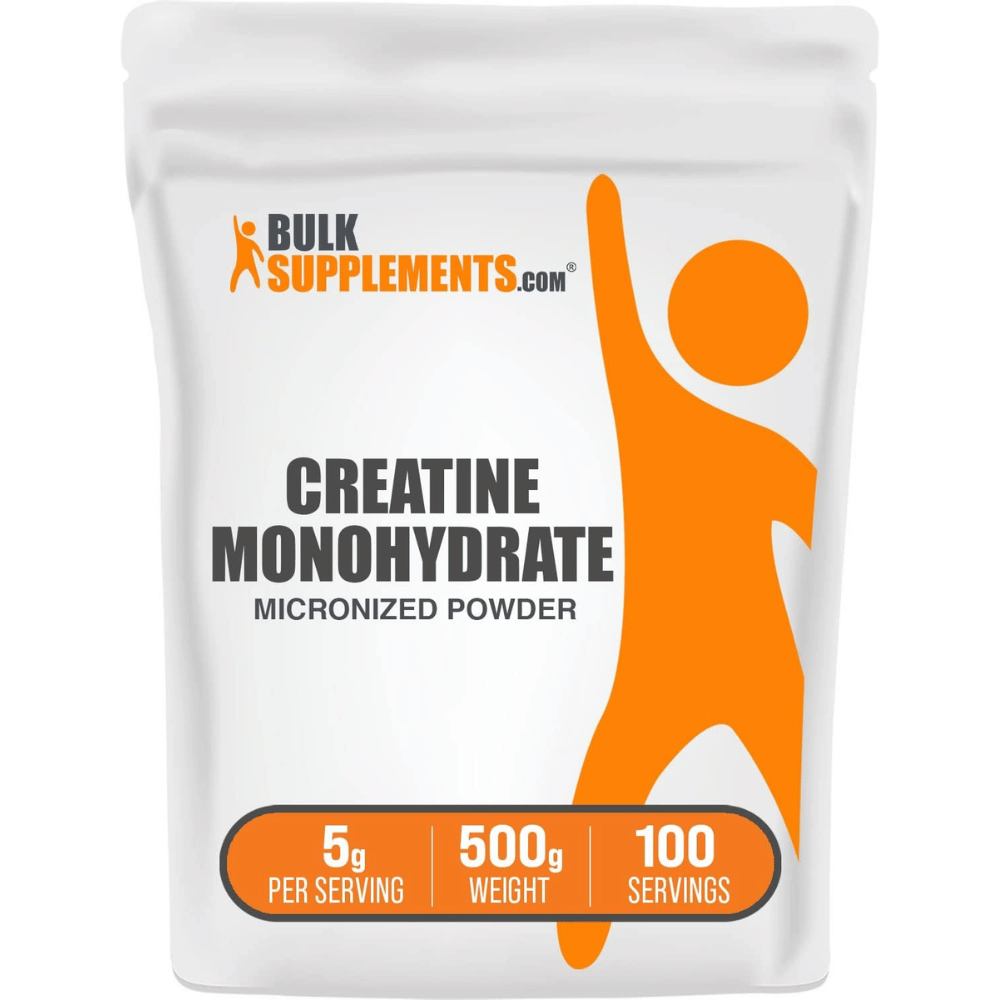
BULKSUPPLEMENTS.COM Creatine Monohydrate Powder
Third-party tested for purity, so you can trust it's up to the highest standards.
BulkSupplements offers a no-frills, high-quality creatine monohydrate that's perfect for women who want a pure product without any additives or artificial sweeteners.
Key Benefits:
- Lab-tested for purity and quality, ensuring you get the best product.
- Comes in powder form for easy mixing with your favorite beverage.
- Can be purchased in bulk, which is cost-effective for long-term supplementation.
Customer Review:
"I decided to try BulkSupplements' creatine on a friend's recommendation, and I'm so glad I did. It's incredibly affordable, and I've seen a noticeable difference in my performance at the gym."
Thorne Research is known for its commitment to science and quality, and their creatine supplement is no exception. It's specially formulated for optimal absorption and performance.
Key Benefits:
- NSF Certified for Sport, making it a safe choice for competitive athletes.
- Free from gluten, soy, dairy, and artificial flavors, catering to women with dietary restrictions.
- Supports both high-intensity training and cognitive function, which is great for multitasking women.
Customer Review:
"Thorne's creatine has been a game-changer for my CrossFit workouts. I feel stronger and more focused, and I appreciate the rigorous testing they do to ensure product quality."
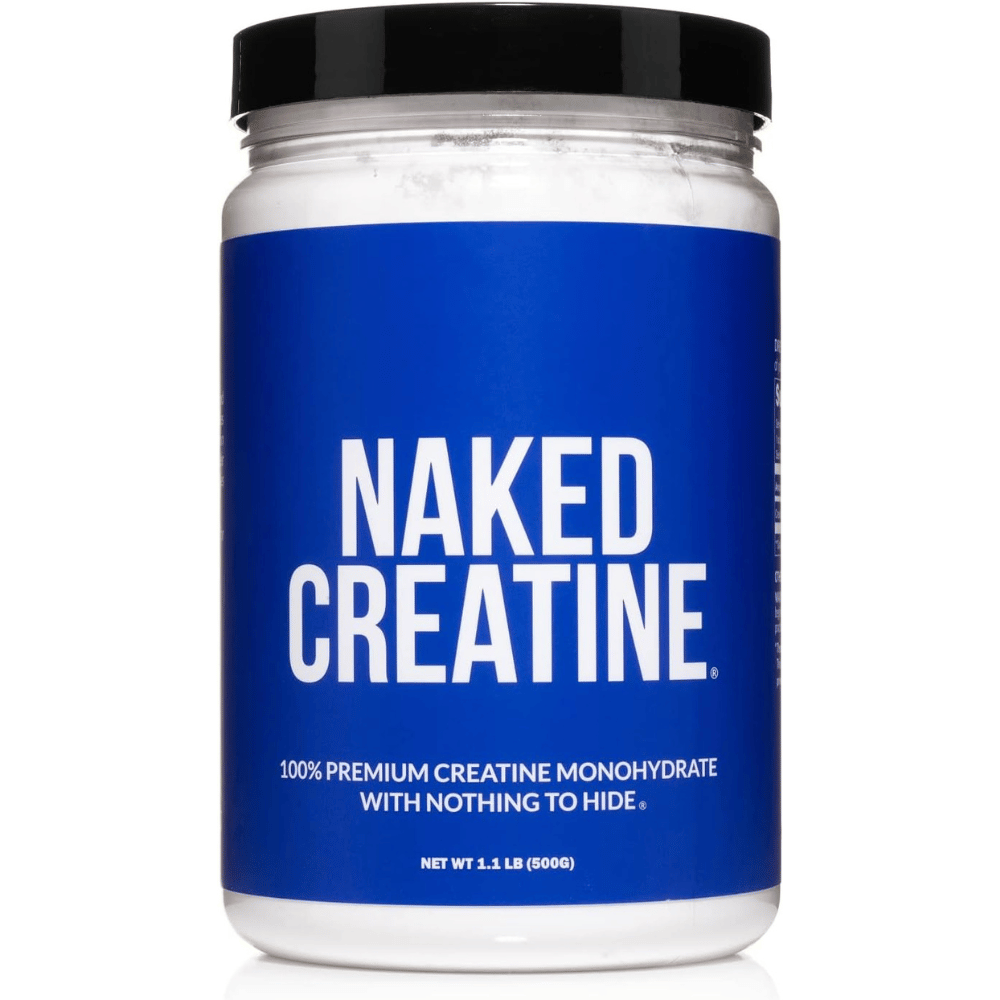
Naked Nutrition Pure Micronized Creatine Monohydrate
Made from pure monohydrate creatine with no artificial sweeteners, flavors, or colors.
Naked Creatine prides itself on being pure and simple. This supplement is for women who want their creatine without any extras – just straight-up performance enhancement.
Key Benefits:
- Only one ingredient: pure micronized creatine monohydrate.
- Independently tested for safety and purity.
- No artificial sweeteners, flavors, or colors – perfect for women who want to keep it 'naked'.
Customer Review:
"I love the simplicity of Naked Creatine. It's just pure creatine with no additives, and it mixes well with my post-workout smoothie. I've definitely seen an improvement in my lifting sessions."
MyProtein is a favorite among fitness enthusiasts, and their Creatine Monohydrate is a reliable choice for women looking to enhance their workout performance.
Key Benefits:
- Provides a boost in power and performance during high-intensity activities.
- Available in both unflavored and flavored options for versatility.
- Offers excellent value for money, which is important for budget-conscious consumers.
Customer Review:
"I've been using MyProtein's creatine for a while now, and it's been fantastic for my HIIT workouts. The flavored options are great when I want something tasty, but the unflavored is perfect for mixing with anything."
Conclusion: The Best Creatine for Women
In summary, the best creatine for women is one that supports their specific fitness goals, whether that's building lean muscle mass, enhancing exercise performance, or improving cognitive function. By choosing a high-quality creatine supplement and adhering to the recommended dosages, women can safely incorporate creatine into their fitness routine and enjoy its many benefits.
FAQs:
Q: Can women take creatine without gaining unwanted weight? A: Yes, women can take creatine without gaining unwanted weight. Creatine may cause temporary water retention in muscle cells, but it does not lead to fat gain. Proper dosage and hydration can help manage any minor weight fluctuations.
Q: How much creatine should women take for optimal benefits? A: Women can follow the standard creatine dosage guidelines, which typically suggest a loading phase of 20 grams per day for 5-7 days, followed by a maintenance dose of 3-5 grams per day. However, some may opt for a no-loading regimen with a consistent daily intake of 3-5 grams.
Q: Are there any specific creatine supplements recommended for women? A: While there are no creatine supplements exclusively for women, products like Optimum Nutrition Micronized Creatine, Transparent Labs Creatine HMB, Nutricost Creatine Monohydrate, and Thorne Creatine are highly recommended due to their quality, purity, and effectiveness. Vegan women should look for certified vegan creatine products.

